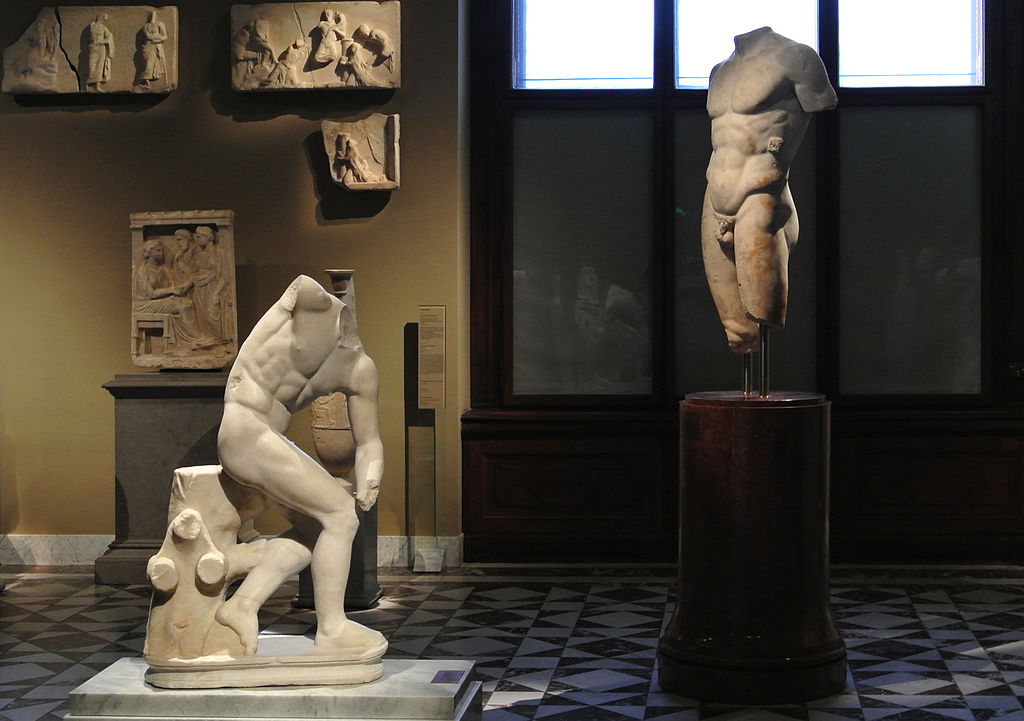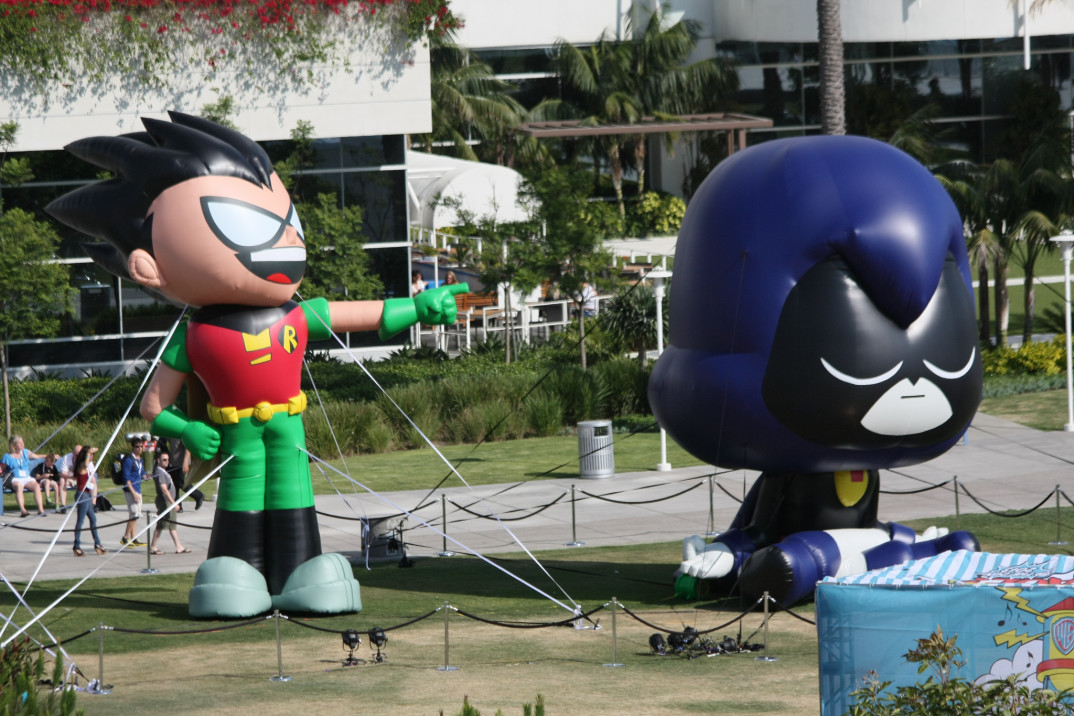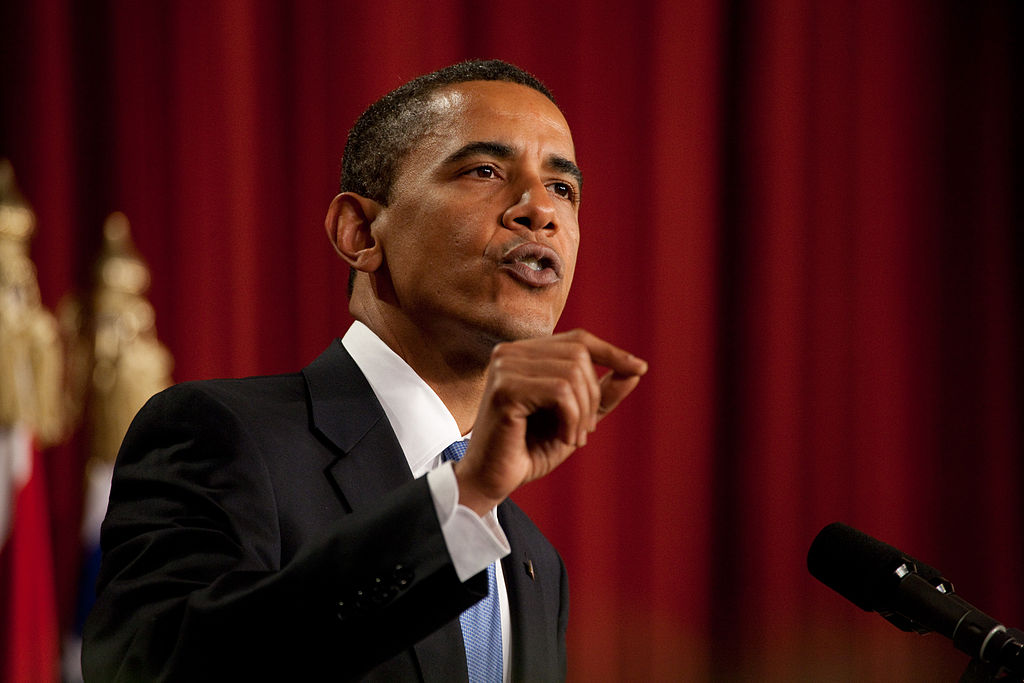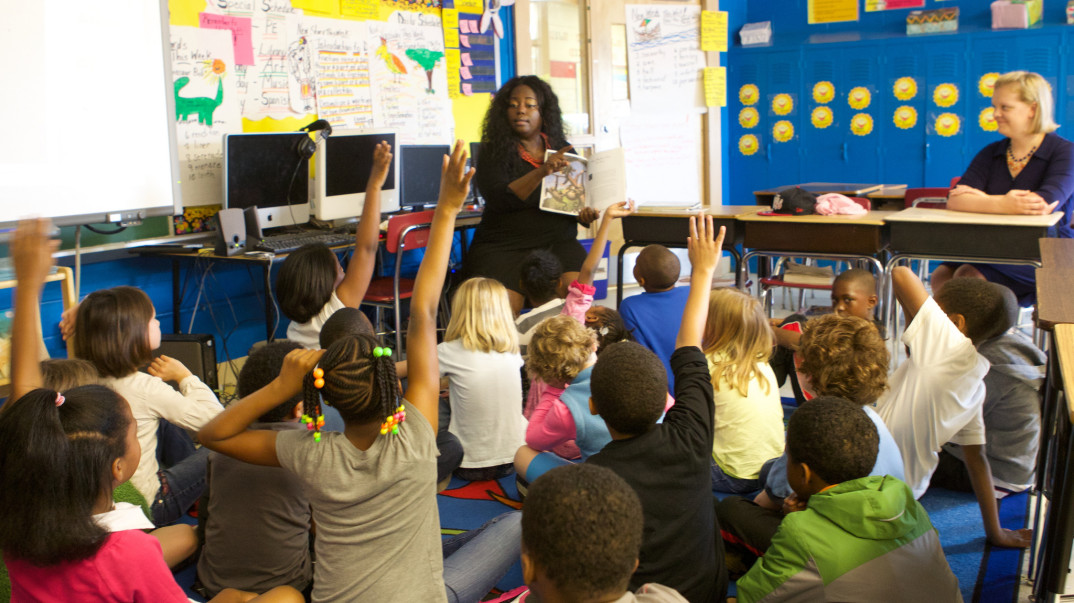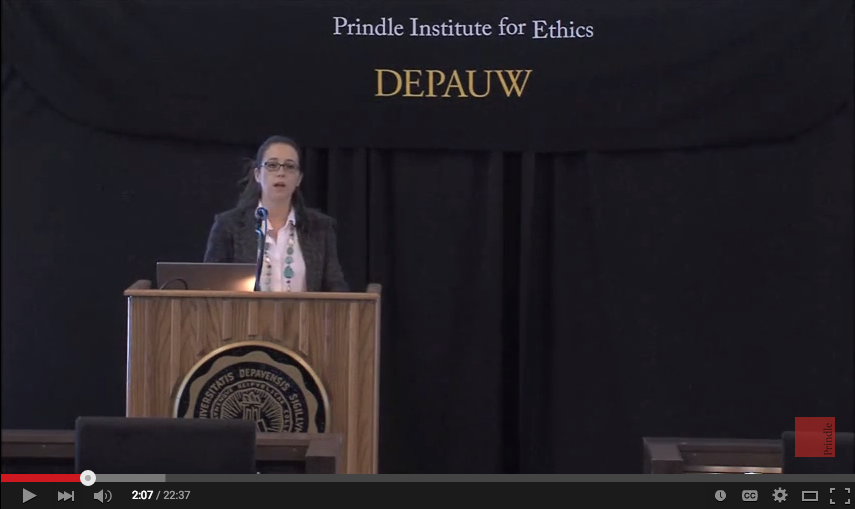Inseparable from the modern museum is an examination of how the forces of globalization affect it. As audiences of these museums seek increasingly globalized experiences, so too have the collections of museums diversified with collections from around the world. Impressive as they may be, though, such collections bring with them a number of ethical issues. And in the time of ISIS and antiquity black markets, foremost among them is just how such antiquities arrived in the museum’s hallowed halls in the first place.
Animated Television: A Boys’ Club?
For many people, animated cartoons form a central pillar of childhood. Whether they are classics like Looney Tunes and Tom and Jerry or newer shows like Spongebob Squarepants and The Adventures of Gumball, cartoons have been a primary source of entertainment for generations of children. Besides the occasional fart joke, such cartoons seem fairly harmless. In their representation of women, though, such shows can act as anything but.
The Ethical Navigator
For the directionally challenged among us, the advent of the GPS has proven revolutionary. Never before has it been so easy to figure out how to get somewhere and, with apps like Google Maps, how long it will take to do so. In this light, such apps provide a crucial source of information for millions of users. But what if these navigational apps could provide an ethical benefit, as well?
What We’re Reading, June 26, 2015
Check out these links suggested by members of The Prindle Post staff:
I am an adjunct professor who teaches five classes. I earn less than a pet-sitter
Shoes That Put Women in Their Place
Can Mission-Driven Food Companies Avoid Selling Out?
Columbia becomes the first US university to divest from private prison companies
What If Authors Were Paid Every Time Someone Turned a Page?
Homegrown Extremists Tied to Deadlier Toll Than Jihadists in U.S. Since 9/11
What have you been reading lately? Share a link with us in the comments!
In Wake of the Tomahawk
It was a chilly afternoon in Belgrade, and my group and I had already seen a lot. For the past few hours we had toured much of the city, stopping at places like the grave of Josip Broz Tito and the National Assembly building. All of the locations we had seen were politically significant in some way or another, part of a crash course on recent Serbian history. But what we were about to see was different.
Does Knowledge Matter?
In February, Dr. Michael Hannon presented his talk “Does Knowledge Matter” as a part of the Young Philosophers Lecture Series hosted by the Prindle Institute and the DePauw Philosophy Department. Next week, we’ll post Dr. Michael Hannon’s research-level talk, “The Threshold for Knowledge.”
Each of the Young Philosophers Lecture Series videos is available on YouTube.
Enjoy, and be sure to let us know what you think in the comments!
Workplace Diversity: A Numbers Game
Anyone who has applied for a job is likely familiar with the stress it can bring. Governed by unspoken rules and guidelines that at times seem arbitrary, the hiring process has traditionally been seen as an anxiety-producing but necessary part of starting a career. For some, however, this process is stressful for an entirely different reason: the fear of discrimination by employers. How, then, should the process be reformed to provide a more equitable environment?
The N-Word and the Politics of Obscenity
In wake of events like the Charleston Church shooting and Black Lives Matter protests, Americans have increasingly been forced to face the harsh racial realities plaguing the country. Such realities have demanded dialogue and conversation on a remarkable scale. And in encountering these dialogues, many have run into the same problem – deciding what language to use in approaching the topic.
Education and a Free Society: Part Two
Previously, Prindle director Andrew Cullison argued that libertarians should favor public education because well-educated citizens would be more likely to endorse and support a generally free political structure. In response, I pointed out that school doesn’t do a great job of teaching the relevant subjects, and that most of the gains to becoming educated (especially attending college) are individual gains, not public goods. To top it all off, voters are generally uninformed (and have incentives to remain uninformed), and government actors are very good at benefitting themselves rather than their constituents, despite the best intentions of ordinary citizens. Are there any reasons for a libertarian to support education, specifically publicly-funded (i.e. tax-funded) education?
Libertarians are essentially individualists. They generally believe that the individual, and not the country, community, or “society,” is the foundational unit of political (and moral) analysis. For this reason, I previously expressed doubts that libertarians would be friendly to the idea that publicly-funded education is a good way to promote libertarianism. That comes close to seeing voters as a kind of clay to be molded through political processes into a citizens who do what you want them to do (i.e., be libertarian). It may result in the right end state, according to a libertarian, but I’m uneasy with the method. (Ideally, issues that are a matter of fundamental rights would not be subject to popular vote in the first place, anyways).
But this individualism can be understood as logically prior to the libertarianism itself, at least in many or most cases. That is, people hold libertarian political positions because they are sympathetic to the individualist worldview. The individualism, then, explains the libertarianism. And individualism can also generate a kind of defense of publicly-funded (even compulsory, tax-funded) education.
As individualists, we should be concerned at all times with how policies that target groups actually affect individuals, benefitting some at the cost of others. And we should be interested in designing institutions that foster individual virtues like self-reliance, responsibility, and autonomy (or allowing these institutions to emerge).
Inconveniently, though, individuals don’t enter the world ready for full autonomy (and responsibility). Instead, they enter as babies and then kids who require significant growth and development to be ready for the primetime of adult life. Families do a pretty good job of raising their young, certain tragic examples notwithstanding, and it would be of greater harm than benefit to attempt to re-organize this basic feature of human societies (even apart from the rights violations involved).
We, as a society, can’t fully compensate for the differences between people and the ways in which their parents raise them differently within the bounds of moral permissibility (and even if this were possible, it’s not clear that it’s morally required or desirable). But we can provide some kind of a basic education to all as an acknowledgment of the capacities each person has – and of the responsibilities a free society will expect her to bear as an adult.
Deciding how much and what kind of education fulfills this individualist purpose won’t be easy, and certainly depends on the context (how prosperous a society is, what the job market is like, etc). But respecting and protecting the rights and freedoms of individuals is the best reason for governments to get involved in education (if there is a compelling one in the end at all). Education markets don’t experience “market failure” in the traditional sense, and it’s unjust to educate students with an eye towards turning them into particular kinds of voters. But the kind of individualism that animates libertarian political positions can also motivate a principled desire to see each citizen receive the education she needs to operate within the kind of society maintained around her.
How Suicide Became a Treatment
Few topics are as controversial, and as silenced in public discourse, as that of suicide. Pushed out of the public eye, suicide is often considered an embarrassing and taboo affair in the United States. It is even more unthinkable for many to recommend, or even assist in, such an act.
What We’re Reading, June 19, 2015
Check out the articles from this week, as suggested by members of The Prindle Post staff:
Cannons in a Quiet Park
On any other day, Belgrade’s Kalemegdan Park would have been relatively peaceful. Usually it would have been filled with people taking walks, groups of tourists and teenagers meeting their friends. Yet today a large crowd of people had gathered at the edge of the park, at an overlook above the Sava river. Just finishing a political tour of the city, my group and I joined them. In the middle of the crowd stood a cluster of soldiers- some in ornamental dress, others in camouflage – and a brass band to their left. To their right stood a group of politicians in dark suits. and in the middle of it all, half a dozen cannon barrels silhouetted against the sunset.
Autonomy and Non-Domination in International Clinical Research
In February, Dr. Danielle Wenner presented her talk “Autonomy and Non-Domination in International Clinical Research” as a part of the Young Philosophers Lecture Series hosted by the Prindle Institute and the DePauw Philosophy Department. Next week, we’ll post Dr. Michael Hannon’s talk, “Does Knowledge Matter?”
Throughout May and June, we’ll continue to post videos of each talk (also available on YouTube).
Enjoy, and be sure to let us know what you think in the comments!
Are You Your Avatar?
The online world has always been one of seemingly endless possibilities. In this space, it has been said, anything can happen and anything can be changed, including one’s own identity. And while this has been the case with many games, others have upended this model entirely. One of them, the online survival game Rust, is doing so to provoke debate about a topic rarely considered: race in the online world.
Black vs. White Space in McKinney, TX
The seemingly endless events of police brutality and the deaths of unarmed black people of the United States has captivated and divided our country. The most recent in the saga is the events of the infamous pool party of McKinney, Texas. Videos of the police officer under question, Officer Eric Casebolt show him arriving at a teenager’s pool party with mostly people of color in attendance and throwing a young bikini-clad fifteen-year-old to the ground, placing both knees and his full weight on her back, and shoving her face into the ground. He then threatens other kids who run to help her by pointing his gun at them. All attendees were unarmed and nonviolent.
There has been discussion over this incident, and much of it is argument over whether Officer Casebolt is racist or not. Those who defend Officer Casebolt argue that he had just responded to two suicide calls and was emotionally unstable at the time. But maybe this argument of whether the officer is racist or not is just a distraction from the real issue at hand, which is why did the police come in the first place? I believe the answer lies in the concept of white space vs. black space, who belongs and who does not, and how this tension leads to racial profiling in our country.
Before the officer arrived at the scene, the teens had been pestered by the security guard of the pool who continuously insinuated that they shouldn’t be there, though according to attendees, they had done nothing wrong. The security guard accused them of playing music too loudly and not having permission to use the pool. The security guard supposedly told them that their music had to be turned off, though attendees swear that the music was edited. Most teens in attendance lived in the community that owned the pool and thus had the right to its use.
Why would the security guard be uncomfortable with a large group of teens when there were groups of white teens at the pool as well? Why would their music be a problem if there were no curse words in it? Why would they assume that the teens didn’t belong, though most of them lived in the neighborhood?
On an episode called the “Birds and Bees” on NPR’s This American Life, one of the voices heard is Nikki Jones, who discusses how Americans racially code space. She says, “The ghetto itself is believed to be carried on the bodies of black people…that presents special dilemmas when black people are in white space. What is white space? Almost anywhere else. In these white spaces, black people have a special burden and they face a number of dilemmas. They have to prove that they belong there, the burden is on them to prove that they belong in a particular space.”
This rings true in the tale of the McKinney pool party. These teens should not have had to convince anyone that they belong in the neighborhood in which they live, let alone be subject to police violence while trying to prove their legitimacy. McKinney is not the ghetto, it is an average middle class suburb of Dallas, TX. By Nikki Jones’s logic, McKinney is white space, no matter how many people of color live there.
When examining events of police brutality against people of color, it is easy to get distracted by the violence. Though we need to discuss the violence and work to end it, our conversations must not end with “agree to disagree” moments of whether police violence was racist or not. Let us not forget to question why the police stopped these victims in the first place. Let’s examine if there was legitimate cause or if it was simply because they were a black face existing in a white space.
Incarceration: The Guided Tour
The world of prisons has gone mainstream. In some ways, at least. With shows like Orange is the New Black (OITNB) and books like The New Jim Crow shaping public discourse, prison narratives have firmly wedged themselves into the American consciousness. And, for some, with exposure to these narratives comes the need to experience something similar for themselves.
The Audacity of “I”
I love “I.” I think “I” is important. “I” makes my writing better. And, while I am not sure it is right in every situation, I am confident that “I” is critical to even the most academic of works.
What We’re Reading, June 12, 2015
Check out these links suggested by members of The Prindle Post staff:
The web is not a post-racial utopia (Conner)
Ruin imagery has a paradoxical (and ethically questionable) appeal (Christiane)
Kalief Browder (1993-2015) (Andy)
Poverty’s effects on young brains (Andy)
Is it ever acceptable to default on student loans? (Andy)
The link between doubting climate change and conservative religious faith (Camille)
What could possibly be wrong with making it easier for people to vote? (Andy)
What to do if you want to raise kind children (Andy)
Anita Sarkeesian is the target of death threats because of her activism (Jacquelyn)
Who gets to hang out at the pool? (Camille)
You may want to reconsider drinking coffee from pods (Jacquelyn)
Will art save our descendants from radioactive waste? (Christiane)
Utilitarians are not nice people (Jacquelyn)
Massive Open Online Courses and corporate learning (Jacquelyn)
When you’re finished reading, listen to this fascinating and touching episode of This American Life (Camille). What have you been reading lately? Share a link with us in the comments!
This is a Self-Portrait
The road through Belgrade was quiet at 4 A.M. Besides the occasional whir of another car speeding by, my taxi was largely alone on the road. Through the windshield I could see the last traces of apartment blocks pass by as we left the outskirts of the city. Somewhere beyond the limits of my vision, I knew the airport waited, its converging neon runway lines already lighting up the pre-dawn darkness.
What Is the Meaning of Freedom?
In February, Dr. Danielle Wenner presented her talk “What Is the Meaning of Freedom?” as a part of the Young Philosophers Lecture Series hosted by the Prindle Institute and the DePauw Philosophy Department. Next week, we’ll post her research-level talk, “Autonomy and Non-Domination in International Clinical Research.”
Throughout June, we’ll continue to post videos of each talk (also available on YouTube).
Enjoy, and be sure to let us know what you think in the comments!
Optimizing the IRB
For the average person, the notion of medical research may conjure dramatic images of lab-coated scientists handing test tubes and analyzing data. What hardly ever comes up, though, is a process some researchers dread: approval by an institutional review board (IRB). Notoriously lengthy and sometimes difficult to navigate, the process is an oft-unseen yet critical piece of conducting research. And, as CNN contributor Robert Klitzman argues, the demands it places in its current form may have become more of a burden on research than anything.
Crowdsourcing Justice
The video begins abruptly. Likely recorded on a phone, the footage is shaky and blurry, yet the subject is sickeningly unmistakeable: a crying infant being repeatedly and violently dunked into a bucket of water. First it is held by the arms, then upside down by one leg, then grasped by the face as an unidentified woman pulls it through the water. Near the end of the video, the infant falls silent, the only remaining audio the splashing of water and murmured conversation as the child is dunked again and again.

